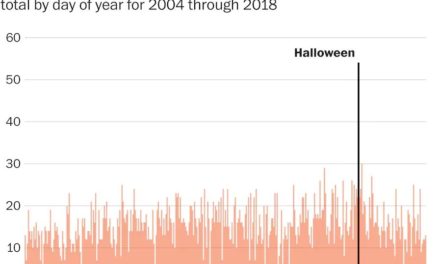There could be merit to the proposal for the school boards to have taxing authority, but it’s up to school officials to carry the burden of proof.
They’re not even close yet.
If Dr. Jeff Warren’s prescription for taxing authority represents the best argument for it, it’s probably going nowhere, because his opening hypothesis will find little acceptance by the vast majority of our citizens.
A Pickle Of A Proposal
The naivete in the proposal was demonstrated most clearly when it was embraced by Shelby County School Board Chair David Pickler, who regularly seduces some city school official in thinking their interests are aligned. Back when the interim superintendent was at Memphis City Schools, he was convinced at one point that the creation of a special school district for county schools was sound policy.
We’ve written before about the significant downside of this idea to the city district – bad tax policy, bad accountability, confusing No Child Left Behind provisions and more. It seems that the report of the special team that was commissioned by city and county school districts to evaluate this issue has been permanently deep-sixed.
This independent, third party assessment by academic experts concluded decisively that the Shelby County Special Schools District was damaging to Memphis City Schools on a variety of levels. As far as we know, members of the Memphis City Schools Board of Commissioners have never even seen a copy of the report.
Coming Up Lacking
But, back to the issue of taxing authority, Commissioner Warren wrote in his proposal, according to trusted Commercial Appeal reporter Jane Roberts, that city and county schools would unite in one taxing authority and divide the money between the districts between enrollment.
That isn’t good enough. It is not enough to simply divide the money, because of the special needs that exist in the student population of Memphis City Schools. Any funding equation has to include weighted funding for city students. Period.
School officials said they are held accountable for higher standards but have no control over their funding. This seemed to imply that taxing authority would allow the school boards to receive more money and in return, there would be greater accountability. It’s an idea that is likely to find little public support.
Proof Needed
Here’s the thing: in the past decade, funding for schools has roughly doubled, the student enrollment has essentially been flat and yet, student performance has declined. If the board members want to suggest that they can raise the tax rate to a level where it can produce better results, it would be good to point how this has happened in the past.
Memphis City Schools Superintendent Kriner Cash said that “an alternate way” to fund schools is needed as a result of events in the past eight to 12 months. Of course, both Memphis City Council and Shelby County Board of Commissioners have done nothing except to perform their legal duties, and when Supt. Cash took the job, surely he knew the rules of the game on funding.
If the school districts now want to change the rules, they need to make a compelling case for how taxpayers will be protected from the district’s single issue focus, and the higher tax rates that could result. After all, since three-fourths of Memphians don’t have children in school, there are many who wish that The Med had taxing authority – or MATA – or early childhood intervention.
Doing Their Duty
When it reduced school funding, City Council members acted in keeping with their responsibility for setting the tax rate and setting the budgets for city services. The cut in school funding was the first – and a courageous – step toward a more equitable tax structure for Memphis taxpayers, who now pay twice for public education and several other public services. It is in the interest of every parent in Memphis for the fiscal playing field to be leveled to close the tax burden disparity that exists between Memphians and non-Memphians.
Meanwhile, Shelby County Board of Commissioners did the same – acting in keeping with its responsibility for setting the tax rate and setting the budgets for county services. It adopted a new approach that treats all county services equally and fairly, including schools.
For too long, both city and county school districts have behaved as if they should be given carte blanche, and greater oversight and accountability by City Council and the Board of Commissioners was not only welcome but overdue. Although taxing authority for school districts is the rule, not the exception, across the U.S., there’s the argument that the present structure puts in place checks and balances that are lost when complete power rests with districts.
Betting On Results
Because taxing authority would require state legislation, the Tennessee Legislature figures prominently in any grand plans; however, the Catch-22 is that Memphis City Schools and Shelby County Schools need the support of Memphis City Council and the Shelby County Board of Commissioners in Nashville.
In that vein, perhaps, the school districts can get support from their city and county legislators if they would couple their push for taxing authority with performance-based standards and measurements of progress. There are precious few of us who would not be willing to pay more in taxes if there was proof that the academic performance of students was improving and that the districts are willing to bet their tax raises on it.
On the surface, it’s too early to be considering any legislation giving taxing authority to the school systems, but at this point, the ball is in the districts’ court. Now their main task is to prove to taxpayers how city students will receive the weighted funding they need and to prove that taxpayers will get a deal sweetener like tying tax increases to performance.



